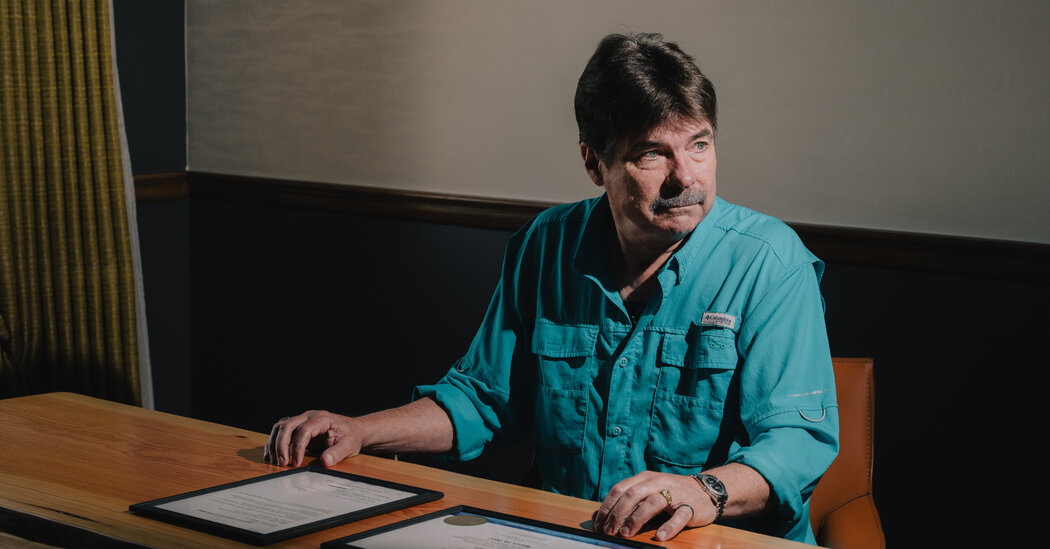Merle Meyers, who left Boeing last year after a 30-year career, said he was speaking publicly about his experience because he loved the company “fiercely.”
Two framed documents from a long career at Boeing hang side by side in Merle Meyers’s home: A certificate from 2022 that thanks him for three decades of service. And a letter he received months later reprimanding him for his performance.
The documents reflect his conflicting emotions about the company. Mr. Meyers, who worked as a Boeing quality manager until last year, holds deep affection for the aircraft manufacturer, where both he and his mother worked. But he is also saddened and frustrated by what he described as a yearslong shift by Boeing executives to emphasize speed over quality.
“I love the company,” said Mr. Meyers, 65, who is publicly sharing his concerns for the first time, supported by hundreds of pages of emails and other documents. For years, he said, quality was the top priority, but that changed over time: “Now, it’s schedule that takes the lead.”
Boeing is revered by many aviation professionals as a lasting symbol of ingenuity and an engineering and manufacturing powerhouse. It is so important to the U.S. economy that presidents have effectively served as salesmen for its planes abroad. The company is a dominant force in Washington State and a top employer in the Seattle area, where it was founded and produces the 737 and other planes.
A job at Boeing is often a source of pride, and many employees have intergenerational ties to the company. In addition to his mother, Mr. Meyers said, his wife’s father and grandfather also worked there.
But that shared pride has been badly bruised in recent years. The company’s reputation was tarnished by a pair of fatal crashes of the 737 Max 8 in 2018 and 2019 and an episode when a panel blew out of a 737 Max 9 plane on Jan. 5. That flight reignited intense scrutiny from regulators, airlines and the public.
Do you work with Boeing?
We want to hear from people who have experience working at or with Boeing to better understand what we should be covering. We may use your contact information to follow up with you. We will not publish any part of your submission without your permission. If you have information that you want to share with The New York Times using tools that can help protect your anonymity, visit: https://www.nytimes.com/tips.
